The main areas to bear in mind regarding the safety of your bird are avoiding obvious household dangers and having your bird trained to accept some flight requests from you. Windows and external doors should be kept closed before you ask your bird to come out of its cage. Alternatively, you can cover windows with a suitable mesh which allows them to be open, but prevents any bird escaping. In rooms where your bird is allowed to fly, any large windows should be covered with net curtains to prevent the bird thinking it can fly through the glass. Large mirrors can cause birds to fly into them, so it's best to remove these. Ceiling fans can cause a fearful reaction in some birds as the blades (even when not switched on) may be seen as a predator's wings, so these fans should not be present in any room in which a bird is either kept or allowed to fly. The kitchen presents many dangers to birds; these include hot surfaces, Teflon-coated pans and ovens and electrical appliances, so it's best to avoid having birds here. Birds may also drown if they fall into a toilet or any other container holding water.
Careful introduction to a new room
When a bird is being encouraged to use an unfamiliar room where it will be allowed to fly, it will need to be introduced to the room properly. Without this introduction, the bird will not know which places are safe and suitable to land on. This introduction procedure is a fairly formal training process whereby the bird is asked to step down onto those places where you would like him to go to and is then given a reward, perhaps a food treat, for doing so. Suitable places include chair backs, the settee, window-ledges, table tops, and a stand for the bird. After the bird has been introduced to these places as perches, he will be more confident about where to land and much less likely to crash-land when he does fly.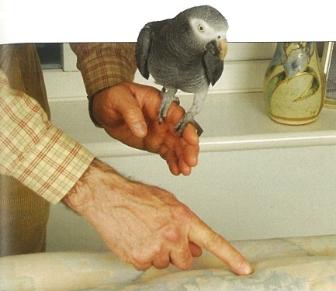
It helps to reassure a bird if you use your other hand to touch any new surface you are asking him to step onto, before setting him down there.
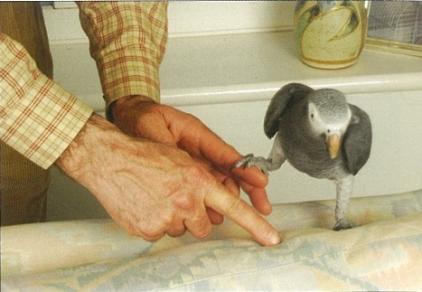
Then set the bird down using your verbal request for this and reward him with a food treat, toy or head scratch, whichever he likes most.
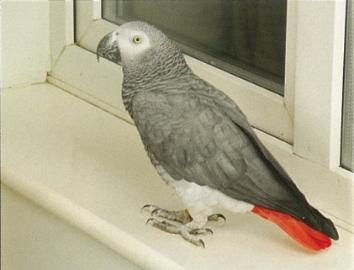
If your bird crash-lands somewhere, avoid approaching him immediately, as you may startle him and so cause
him to panic.
him to panic.
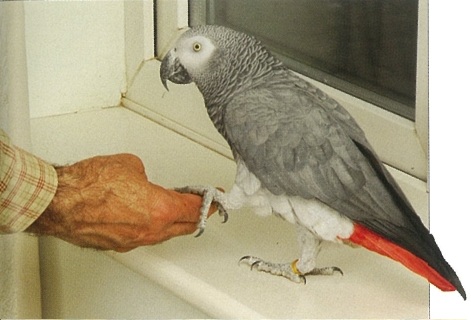
Only once the bird is calm and has collected himself after a crash landing should you approach him to step up onto your hand.
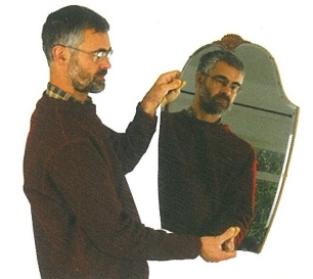
Large mirrors should be removed,
reversed or covered up to prevent
birds inadvertently flying into them.
reversed or covered up to prevent
birds inadvertently flying into them.
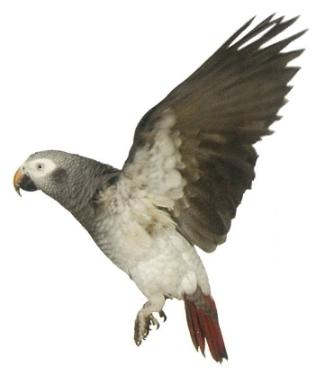
All greys should be encouraged to fly as this
activity is vital for their physical and
mental well-being.
activity is vital for their physical and
mental well-being.